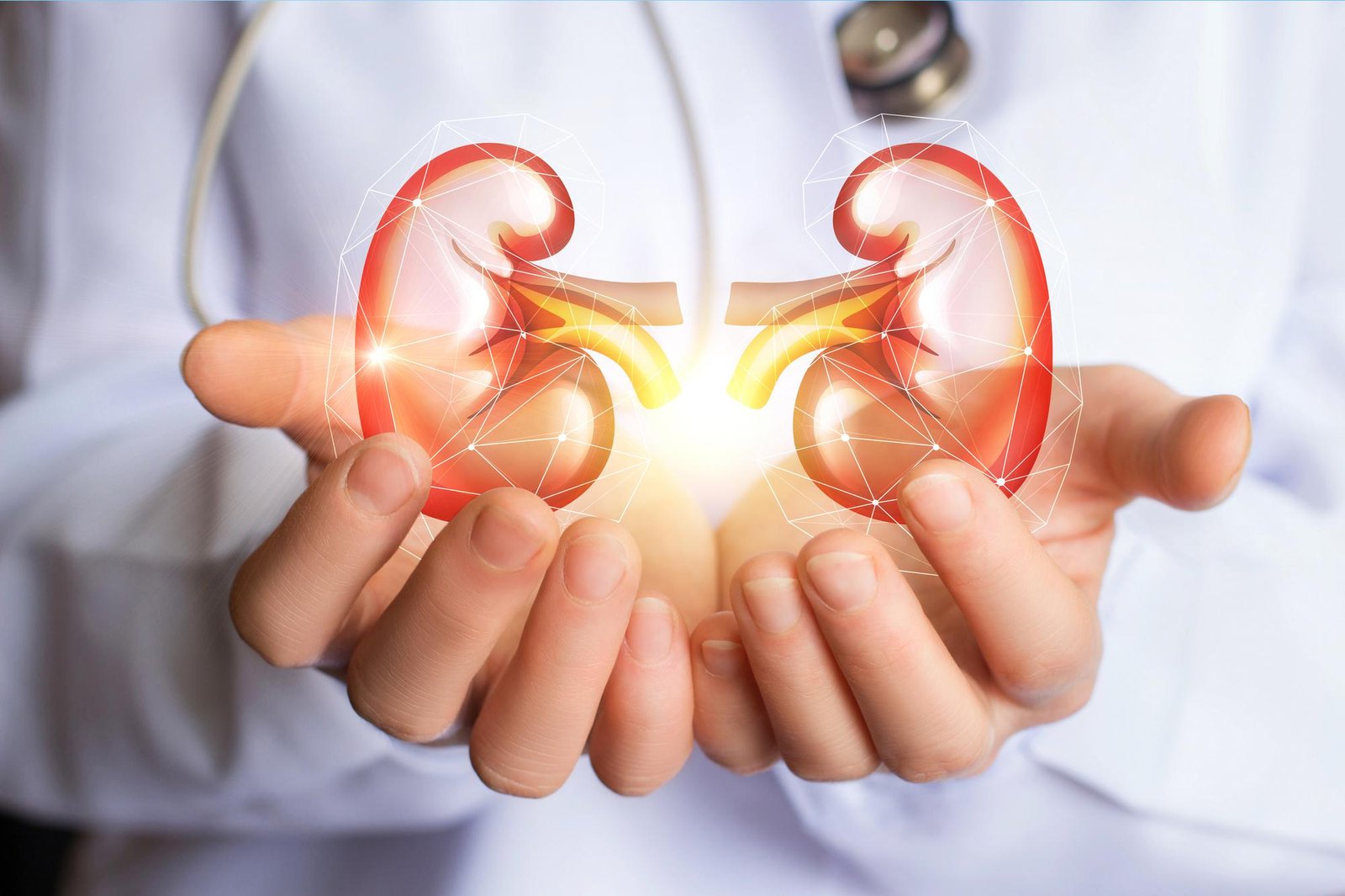Kidneys are filtration apparatus and a vital organ. Human beings are normally born with two kidneys. The main function served by the kidneys is filtration of blood and excretion of excess water, urea, protein, creatinine and other molecules through urine. Filtration of blood is exclusively performed by the kidneys and no other organ in the body. Apart from filtering blood, kidneys also store vitamin D, release BP regulating hormones and produces RBCs.
Kidney Function Tests
Healthy kidneys ideally pass out through the urethra urine that is pale yellow in color and clear. Kidneys function may be sub-optimally due to temporary illness conditions or deterioration of kidney health.

Kidneys can become diseased due to microbe attack, inflammation or internal wound. Kidney failure and CKDs can occur earlier in people with uncontrolled blood sugar levels and high blood pressure.
Symptoms of kidney dysfunction
The following symptoms can arise when kidneys do not function normally as well as due to other conditions like UTI. The symptoms can indicate kidney dysfunction but are not conclusive.
- Dark-coloured urine
- Abnormal smelling urine
- Cloudy urine
- Blood in urine
- Presence of fibers in urine
- Pain and discomfort during urination
- Urge to urinate frequently within short intervals
The occurrence of these symptoms does not necessarily indicate serious illness. Renal function tests are required to confirm kidney disease. Paired RFTs can serve for better diagnosis than isolated RFT.
Renal function tests
To perform renal function tests, patients are required to give blood and urine samples. The following tests are performed in the lab to detect kidney disease:
GF
GFR is the glomerular filtration rate. It is the rate at which blood is filtered by the kidneys. Glomeruli are the filtration apparatus of the kidney. These are a cluster of nerve endings and small blood vessels found inside kidneys. Each kidney contains 1 million glomeruli. When the blood passes through the glomerulus apparatus, the urine gets filtered into a tubule connected with the glomerulus. The bloodless urine is circulated back inside the body. GFR rate can be determined during a blood sample test. Normal GFR is around 100. A low GFR than normal is suggestive but not conclusive of kidney disease or dysfunction.
Creatinine in blood and urine
When creatinine phosphate breaks down in the muscles, creatinine is produced. The production rate of creatinine is fairly constant. Kidneys filter out creatinine at a constant rate. If filtration is deficient, then blood creatinine levels rise. Creatinine levels in urine and blood is used for determining creatinine clearance rate. The level of creatinine in blood is fairly steady in normal health. Creatinine levels in the blood is used for calculating GFR since GFR can be measured by any chemical that has steady levels in the blood.
Crystalline C Concentration
Kidney foundations have of late found that Cystatin C concentration in blood can better measure GFR compared to creatinine. Creatinine’s concentration in serum can significantly vary as per eating habits, age, gender, muscle mass, medications and other factors. Cystatin C is another substance filtered constantly at the glomerulus. Properties of Cystatin C, like low molecular weight and less variability with factors, make it more suitable for measuring GFR.
BUN
BUN test is short for blood urea nitrogen test. The test measures nitrogen amount in the blood that is derived from urea. Urea is secreted by the liver and is eliminated from the blood by the kidneys. Urea is produced as a waste product during the protein digestion process. Urea nitrogen content in adult humans of normal health is within 7 mg to 25 mg per 100 ml blood.
Kidney MRI
MRI can be used for detecting growth in kidneys. MRIs can clearly show in detail soft tissues. MRI scan can be used for locating masses and cystic formations. Blood vessels and lymph nodes can be clearly studied using an MRI scan. MRI kidney scan can easily detect abnormal mass formation in or near the kidneys. 3D MRI images of kidney mass can help urologist in diagnosing whether the growth is cancerous or non-cancerous.
MRI is usually safe for most people. However, people with metal implants in limbs or joints, ear implants, clips or coils in the brain or cardiac pacemaker cannot undergo MRI procedure. MRI scan is clearer when gadolinium contrast is added. Gadolinium contrast MRI is not recommended for patients with liver or kidney disease.